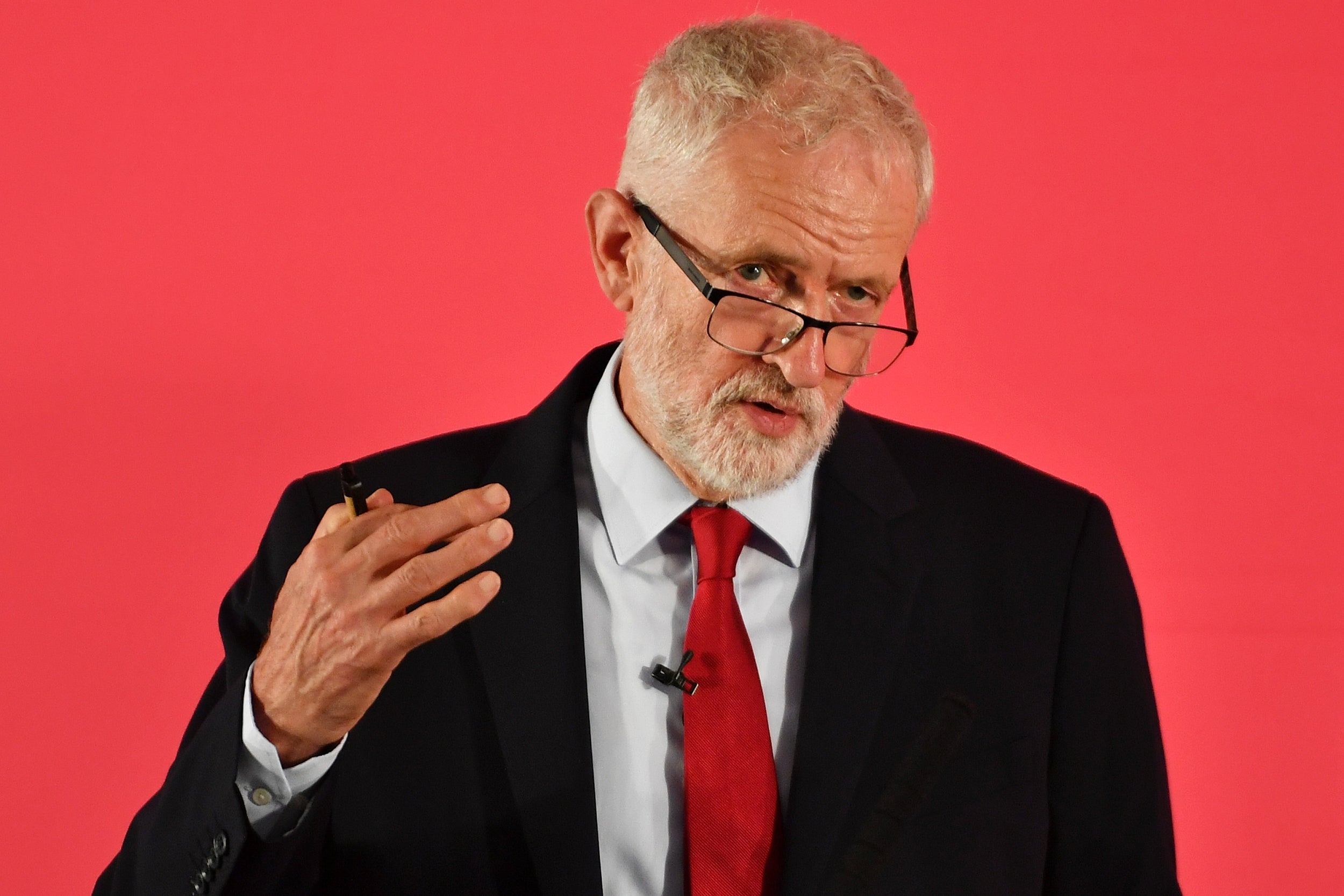Jeremy Corbyn is a coward who won’t change Clause IV to reflect what he believes
The Labour leader opposed the change in 1995, but lacks the courage to argue for his beliefs now. His media operation tries to shut down the question whenever it is raised


Your support helps us to tell the story
From reproductive rights to climate change to Big Tech, The Independent is on the ground when the story is developing. Whether it's investigating the financials of Elon Musk's pro-Trump PAC or producing our latest documentary, 'The A Word', which shines a light on the American women fighting for reproductive rights, we know how important it is to parse out the facts from the messaging.
At such a critical moment in US history, we need reporters on the ground. Your donation allows us to keep sending journalists to speak to both sides of the story.
The Independent is trusted by Americans across the entire political spectrum. And unlike many other quality news outlets, we choose not to lock Americans out of our reporting and analysis with paywalls. We believe quality journalism should be available to everyone, paid for by those who can afford it.
Your support makes all the difference.There was a blip in the Labour media handling operation today as it was suggested that Jeremy Corbyn might be planning to restore the old Clause IV of the party’s constitution.
He has no such intention, we are told. Perish the thought. The story arose because “a few” local parties have sent motions to next week’s conference calling for the clause drafted by Tony Blair to be scrapped and the old version of Labour’s aims and values to be reinstated.
The party’s National Executive Committee met on Tuesday to discuss its response, and decided to ask those local parties to withdraw their motions in return for a working party being set up to look at the wording of the clause.
My colleague Ashley Cowburn reports that an NEC member says the intention is not to return to the old Clause IV, but to “consider possible revisions” to update the wording in the modern language of equality.
We shall see if that will be enough for those delegates nostalgic for the 1918 wording that was abolished in one of the defining moments of New Labour in 1995.
This mini-kerfuffle is telling. The battle to change Clause IV was a months-long campaign that Blair used to send a simple message to the electorate that the party had changed. He told his first party conference as leader in 1994 that it was time to update the constitution to “say what we mean and mean what we say”.
Out went the catechism (below) that committed the party to the “common ownership of the means of production” and in came a rather bland bit of do-gooder waffle. This was more than a public relations exercise, however. Blair took to the road to argue for the new clause, and forced the defenders of the old wording to say what they meant by it. It turned out that they meant anything from orthodox Marxism to socially responsible public limited companies.
This was one of the largest exercises in political education undertaken by a modern party – at least until the arrival of Momentum and its associated The World Transformed festival.
And yet Corbyn shies away from restaging that debate. He opposed the change in 1995, but lacks the courage to argue for his beliefs now. His media operation – as slick as New Labour in its heyday – tries to shut down the question whenever it is raised.
Fortunately, there are some intellectually rigorous members of the Labour Party who chafe, not at the main part of the clause, from which Corbyn has borrowed “the many not the few”, but at one of the paragraphs of exposition that follow. The bit they don’t like is part 2A, which commits the party to work for “a dynamic economy, serving the public interest, in which the enterprise of the market and the rigour of competition are joined with the forces of partnership and co-operation to produce the wealth the nation needs”.
Corbyn doesn’t agree with “the rigour of competition”, any more than Blair believed in state ownership, which is what “common ownership” was generally thought to mean.
But Blair had the courage to set out what he believed and fight for it. Corbyn hopes that, if he keeps it vague, the voters will imagine that he is offering something somehow better than the status quo. “Straight talking honest politics” indeed.
The old Clause IV, 1918-1995
To secure for the workers by hand or by brain the full fruits of their industry and the most equitable distribution thereof that may be possible upon the basis of the common ownership of the means of production, distribution and exchange, and the best obtainable system of popular administration and control of each industry or service.
The new Clause IV, since 1995
The Labour Party is a democratic socialist party. It believes that by the strength of our common endeavour we achieve more than we achieve alone, so as to create for each of us the means to realise our true potential and for all of us a community in which power, wealth and opportunity are in the hands of the many not the few; where the rights we enjoy reflect the duties we owe and where we live together freely, in a spirit of solidarity, tolerance and respect.
Join our commenting forum
Join thought-provoking conversations, follow other Independent readers and see their replies
Comments